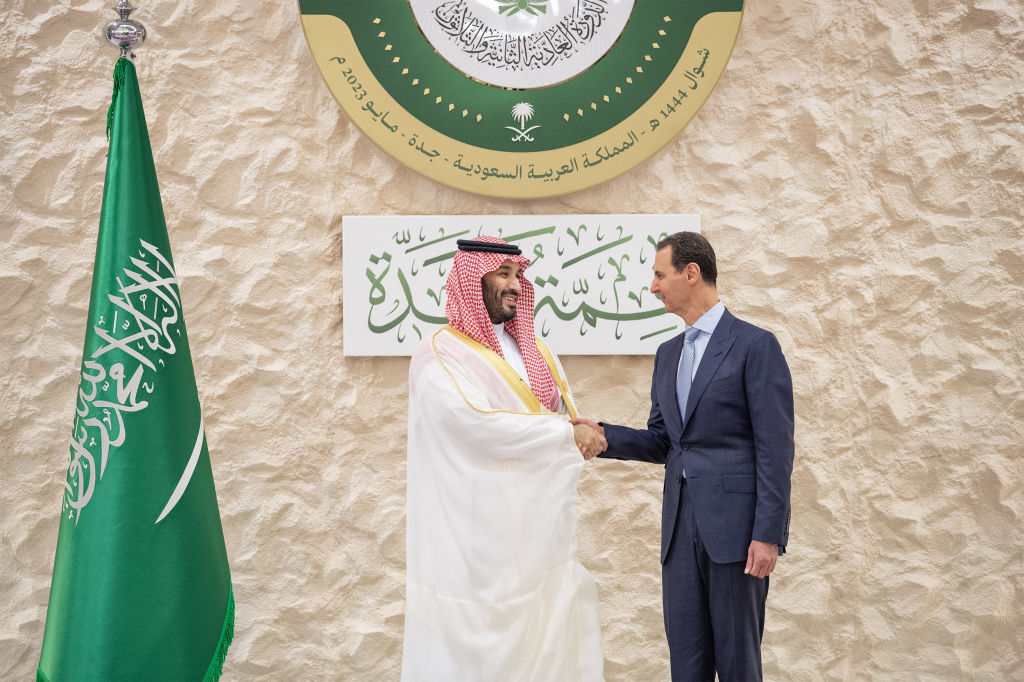
The Middle East’s strategic equation is rapidly changing against the global backdrop of polarisation between democracies and autocracies. Its authoritarian rulers have lately taken a number of steps to safeguard their positions in this context by becoming more accommodating towards each other. Their moves entail serious implications for regional and global politics.
Of the recent developments, two stand out as highly consequential: the Iran – Saudi Arabia rapprochement and the rehabilitation of the Syrian ruler Bashar al-Assad. Both, interactively, are set to influence the direction in which the Middle East is heading.
The first development, occurring under China’s good offices, signals the willingness of the de facto Chinese- and Russian-allied Islamic Republic of Iran and the traditionally pro-Western Kingdom of Saudi Arabia to smooth out their traditional sectarian and geopolitical differences. The restoration of their ties after a six-year break carries the potential for cooperation in reducing regional tensions between them in Iraq, Syria, Lebanon and, most urgently, Yemen.
The second development indicates that the Arab world, despite its previous support of the popular uprising against the Assad regime and its condemnation of the regime for its bloody suppression of the opposition, with active Iranian and Russian support, wants to bring Syria back into the Arab fold. Assad’s attendance of the recent Arab League meeting in Riyadh, his call for domestic affairs of the regional states to be left to themselves, and his call for the curtailment of interference by outside powers, by which he meant specifically the United States, couldn’t have been more disconcerting to Washington and its democratic allies.
The US’s and UK’s immediate criticisms of the Arab League for inviting Assad and providing him with a forum in which to stand tall for all his atrocities and his alliance with Russia and Iran as well as his support of the Russian invasion of Ukraine essentially underlined Western frustration with the unpredictability and unreliability of Middle East actors. The episode could only cut deep in Washington as traditional security provider to Saudi Arabia and its Arab allies in the Gulf Cooperation Council. Also, it could unsettle America’s strategic partner, Israel, which has viewed the Iranian and Syrian regimes with utmost disdain and as security threats.
Yet, it appeared fine with all of the Arab League members (except the Emirate of Qatar, which has sought to carve out a foreign policy independent of other fellow Arab states). They have shown no qualms over Assad’s unsavoury actions, involving massive human rights violations, unshakable ties with Iran, and facilitation of Vladimir Putin’s Russia in establishing a strong foothold in Syria.
Syria’s readmission into the Arab League, which has never been an effective organisation, doesn’t necessarily mean that the Assad regime’s relations will now blossom with most of the league. Each of those members has its own conditions and it may take some time before the Assad regime can claim full accommodation. The same is true in the case of Iranian–Saudi rapprochement.
However, what the two developments simply reveal is that most of the Arab states feel more comfortable in an authoritarian framework than a democratic one. While the Ukrainian leader Volodymyr Zelensky was also given an opportunity to address the Arab League, most of whose members have not outrightly condemned Russian aggression in Ukraine, and while Assad decided not to listen to Zelensky’s speech, Putin’s Russia and Xi Jinping’s China cannot but be happy with the direction the Middle East is taking. The US as the traditional influencer has never been as much on the back foot in the region as it is now.
How this is going to play out in the medium to long run, only time will tell. For the time being, in a zero-sum game, the US is not winning—a challenge that Joe Biden’s presidency cannot simply brush off.

